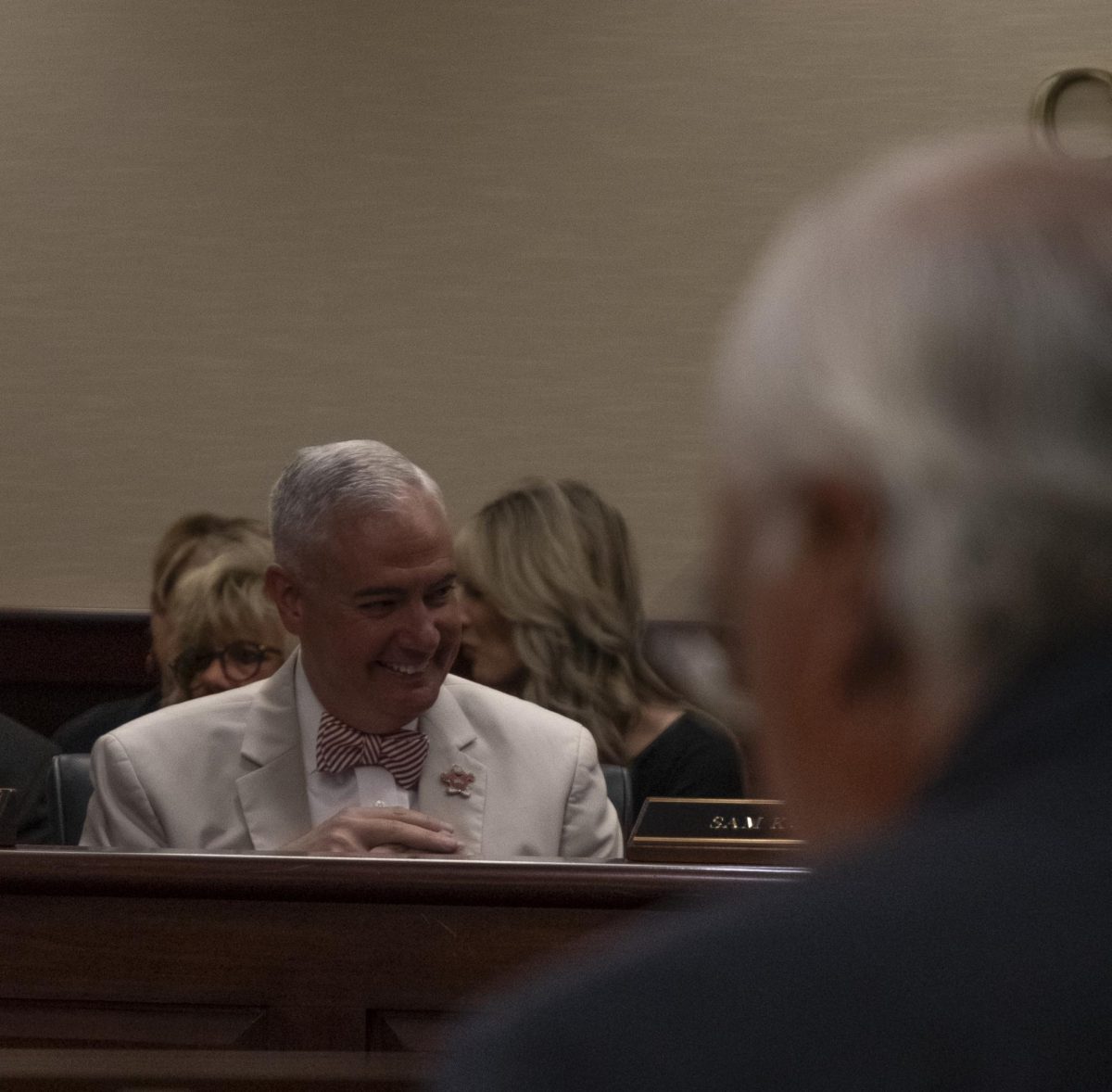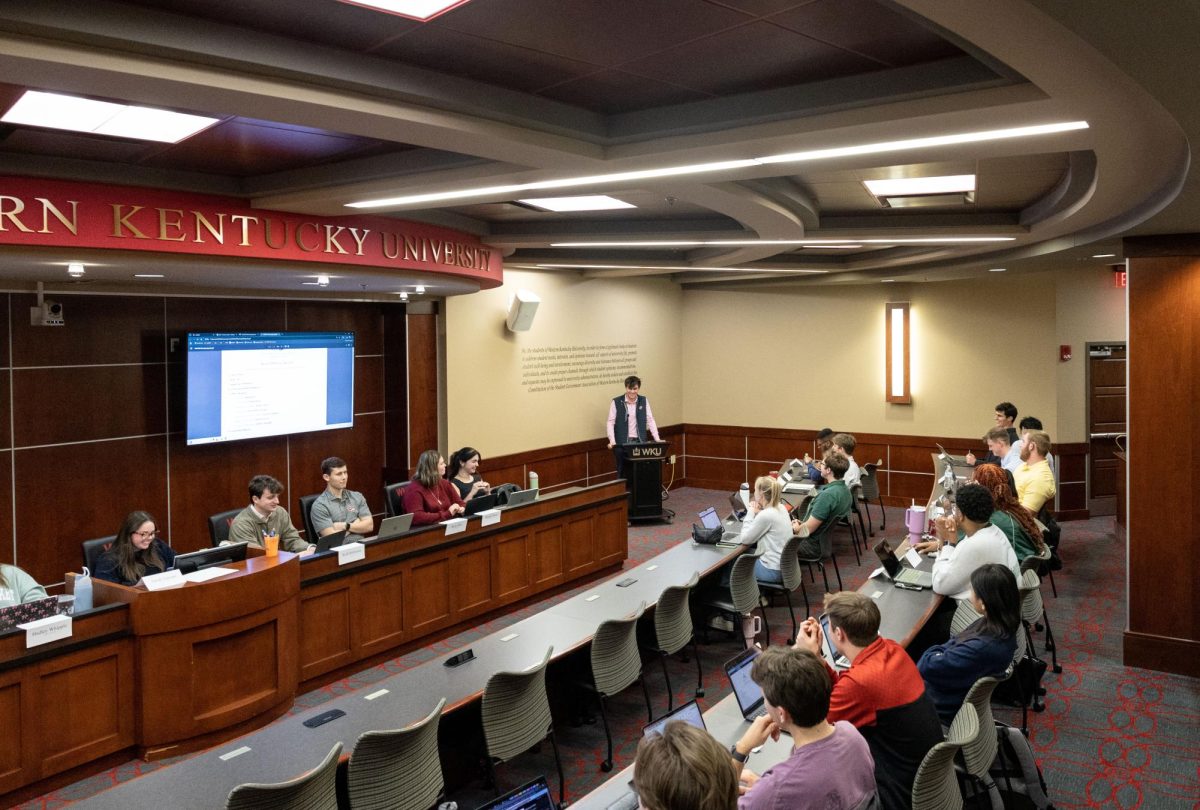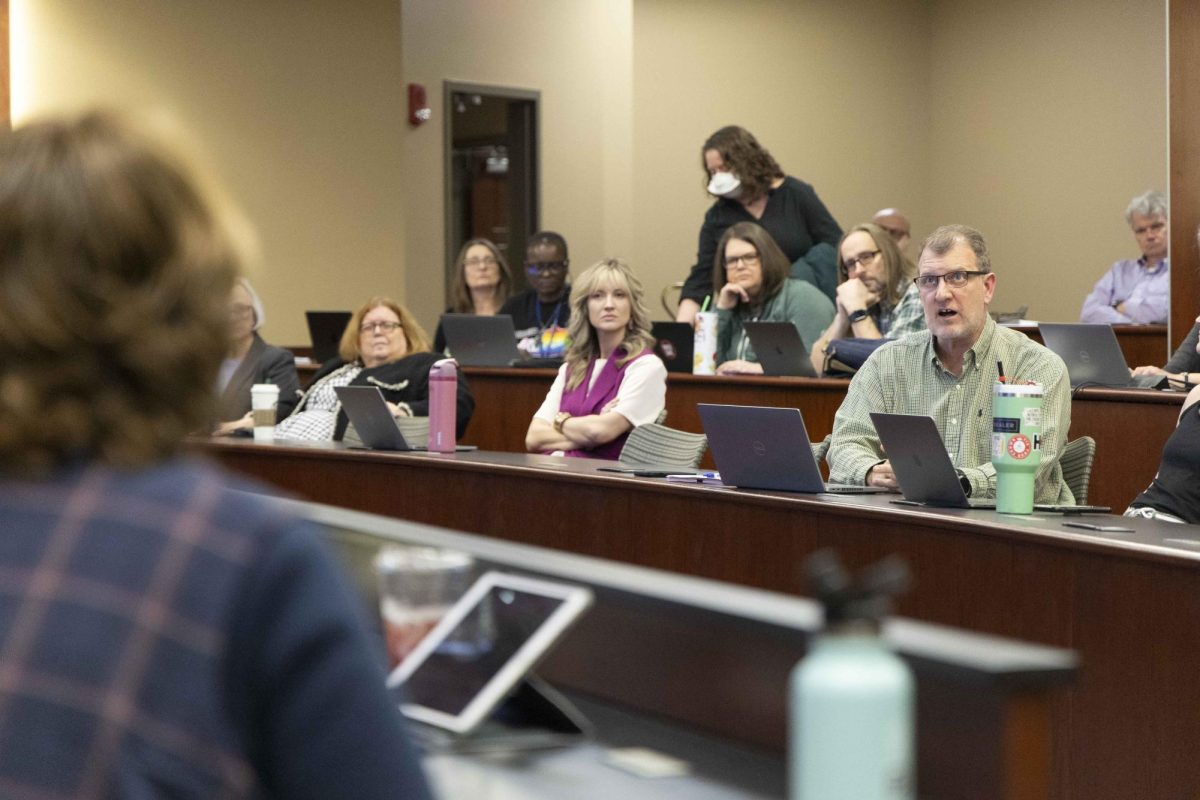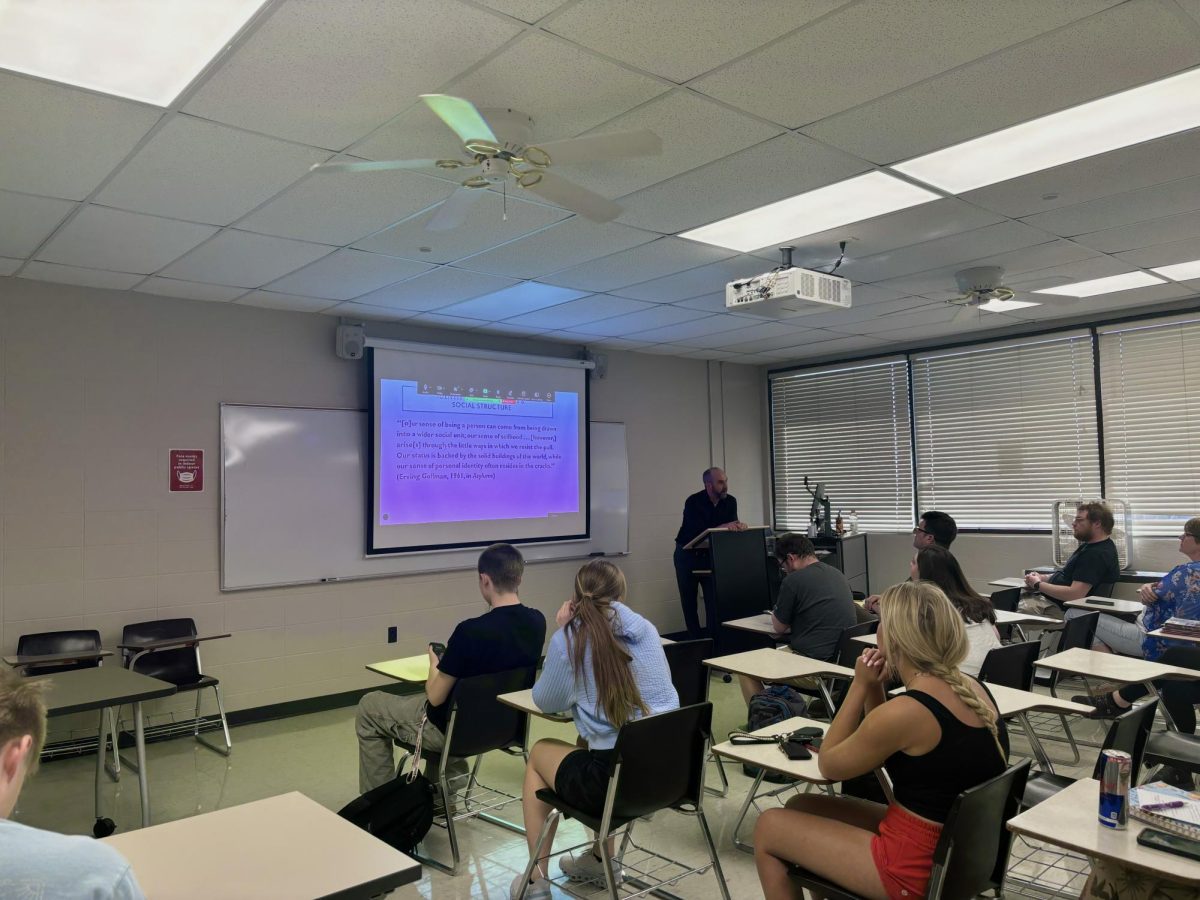For the sixth consecutive year, the WKU faculty-work life survey results revealed that morale among faculty is “very poor,” a product of low levels of satisfaction with compensation and a lack of transparency from administration, according to the survey.
The WKU Faculty Senate’s Faculty Welfare and Professional Responsibility committee announced a summary of the 2024 Faculty Work-Life survey in an email to faculty and staff on May 13. The survey covered a variety of topics ranging from compensation and budget to administrative transparency.
According to the 2023 WKU Fact Book, there are approximately 640 full-time faculty and approximately 300 part-time faculty. A total of 182 faculty members responded to the survey, and 77% of respondents viewed faculty morale as either “very poor” or “poor,” according to the survey results.
“This is nothing new,” Gordon McKerral, newly appointed chair of the faculty senate, said in an interview for the Herald on May 17.
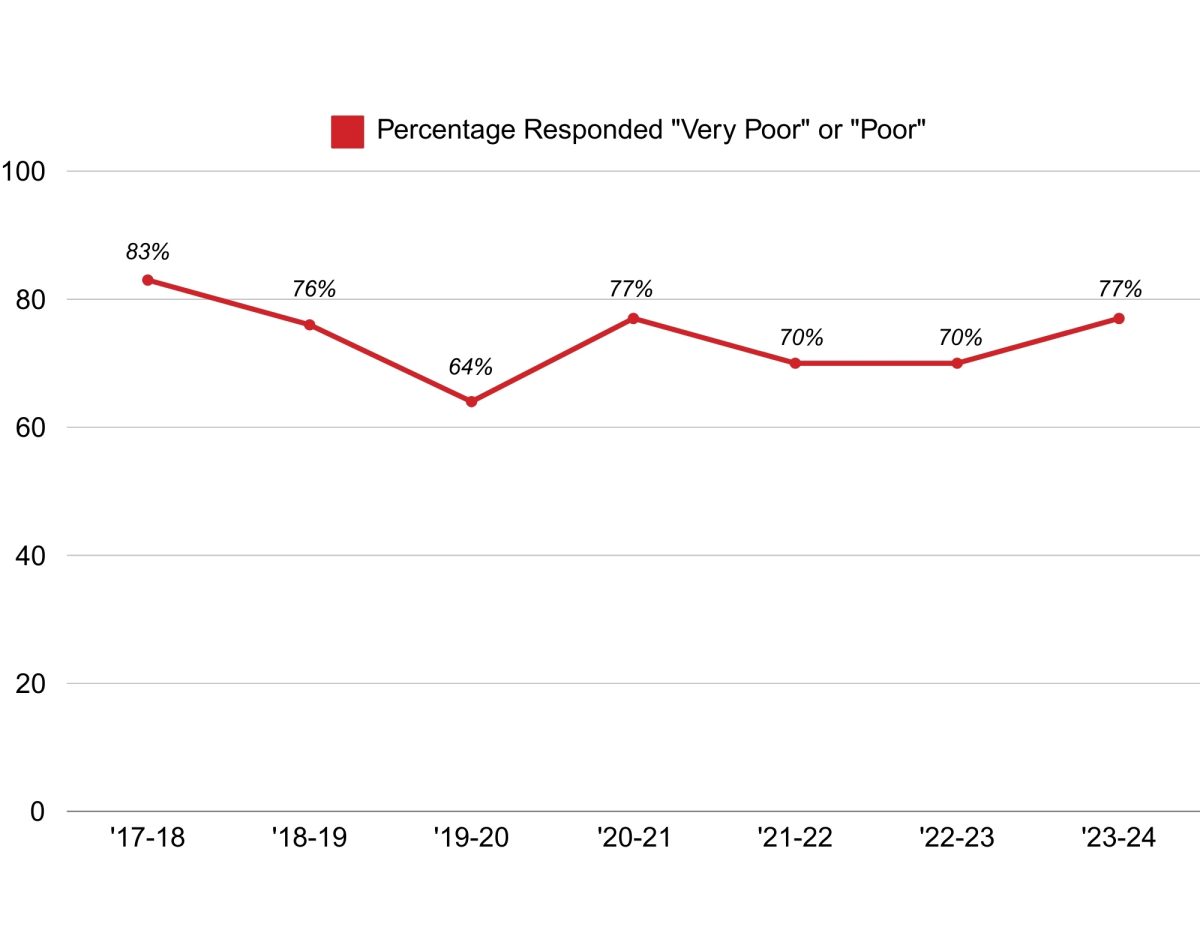
- For the 2017-2018 academic year, the first year Timothy Caboni took office, 83% of respondents felt morale was “very poor” or “poor.”
- For 2018-2019, 76%
- 2019-2020, 64%
- 2020-2021, 77%
- 2021-2022, 70%
- 2022-2023, 70%
According to an analysis of the work-life survey from 2023, low faculty morale is a common theme.
“Responses described poor morale, toxic environments, micromanagement, lack of transparency, and eroded trust in administration,” according to the analysis. “Suggestions included better communication, valuing faculty, and respecting shared governance.”
“A lot of people, I think, look at these various categories kind of independently,” McKerral said. “But that’s not the way to look at it because they’re all interconnected.”
Landon Elkind, assistant professor of philosophy and faculty senate member, shared the survey results and a summary notes to WKU faculty on May 13. According to the summary, the issue that garnered the most responses was compensation and raises.
The summary highlighted three main concerns regarding compensation: increasing faculty salaries to be more competitive and to keep up with inflation, addressing salary compression and pay equity, and providing meaningful annual raises and merit-based pay increases.
Faculty were asked to rate their level of agreement with various statements regarding salary satisfaction on a scale of one to five. When asked if their salary was satisfactory to their relative years of service and rank, the average rating was 1.80. Similarly, when asked if salary was satisfactory compared to colleagues at other universities/colleges, the average rating was 1.59.
At the Board of Regents quarterly meeting on May 2, President Timothy Caboni addressed concerns over salary increases.
“Since I arrived, our staff and our faculty are our most important asset,” Caboni said, “and we are committed to regularly increase salary pools.
“We must continue to do that work even if it’s reallocating resources internally. We have to make sure every year we have the ability to reward the performance of our faculty and staff.”
According to McKerral, faculty doesn’t feel that the administration is making any efforts toward increased compensation.
“It’s one of the most important things that we have, it’s people’s livelihood,” McKerral said. “It’s how they take care of their families. It’s how they pay their bills…it just, it grinds on people.”
McKerral also spoke about the concerns over transparency. “I see the word transparency thrown around by administrators all the time,” McKerral said, “and our level of transparency here is about as clear as mud.”
In the recent work-life survey, faculty were asked whether they felt, on a scale of one to five, whether they agreed with the statement that “university decision making is transparent.” The average score was 1.99.
Addressing the budget
At the budget approval meeting on June 2, 2023, Caboni shared similar sentiments with the Board of Regents in response to Faculty Regent Shane Spiller’s concern over a lack of faculty members on the budget executive committee. For 2023-2024, the committee housed 26 total members, mostly administrators and deans. There were six total faculty representatives.
“We’ve created transparency for faculty,” Caboni said at the meeting, “we’ve created the ability to have input for faculty and really deep engagement around a budget that was never transparent before, but we’re not going to have a budget that is controlled by faculty.”
Caboni’s reasoning for this was that budget planning is not in the faculty’s “domain of expertise.”
On Oct. 19, 2023, Caboni spoke to the faculty senate, addressing various concerns and questions they had over a variety of topics ranging from a 2% salary raise to the budget. After he finished his speech and was preparing to leave, Caboni made one final statement to the senate.
“The person who asked to have access to Axiom (WKU’s third-party budget software) so they can go line-by-line through the budget,” Caboni said at the Oct. 19 meeting, “I don’t even do that. We could give it to you, but you wouldn’t understand it, and so this is the way we do this – we share information.
“Trust. Trust Susan (Susan Eagle, the faculty senate chair for 2023-24), she’s not lying to you. She’s not b.s.ing you. Trust your budget folks. Trust your dean. Trust your department chairs. We’re all in together.”
McKerral said he viewed Caboni’s speech as a way to tell faculty to keep out of the budget issues.
In this year’s work-life survey, faculty also shared concerns over the RAMP budget model that WKU uses.
According to WKU, RAMP is an incentive-based budget model that includes allocation of resources from a central administration to the various colleges.
When asked, on a scale of one to five, whether they were confident in the RAMP budget model allocating university resources fairly, the average response rating was 1.89. Similarly, when asked whether they were confident in the RAMP model allocating university resources transparently, the average score was 1.96.
Administrative raises
At the Regents’ May 2 meeting, a 2% salary increase pool was announced to have been accepted by executive leadership and would be included in the 2025 fiscal year budget.
“First of all, there’s a 2% pool,” McKerral said. “That doesn’t mean everybody’s getting 2%. In fact, not everyone is getting 2%.”
The reason not every faculty member is getting a 2% salary raise, McKerral said, is because of internal issues within some departments with compression. “People who have been around here for a long time, faculty members, salary wise, are kind of losing ground to new faculty members,” McKerral said.
In the work-life survey summary, addressing salary compression and pay equity issues was an emphasized concern faculty shared regarding compensation.
When asked about his salary increases at the Oct. 19 faculty senate meeting, Caboni told the senate that he gets 2% like everyone else.
“I get a 2% raise,” Caboni said. “I get the same raise that you (faculty) get. That’s built into my contract as an incentive, so that I have an incentive to get a raise for you because I also get a raise.”
In 2021, the Board of Regents voted to approve a new employment contract for Caboni that cemented his second 4-year term as president of WKU. A key incentive in the contract was an annual performance bonus equal to 10% of his base salary.
According to documents shared on the WKU Office of Strategy, Operations and Finance website, Caboni’s salary increased by 17% from $400,008.00 to $468,180.00 from the 2019 fiscal year (his first year overseeing the budget) to the 2024 fiscal year.
But, it wasn’t just the president position that saw increases in salary from FY19 to FY24.
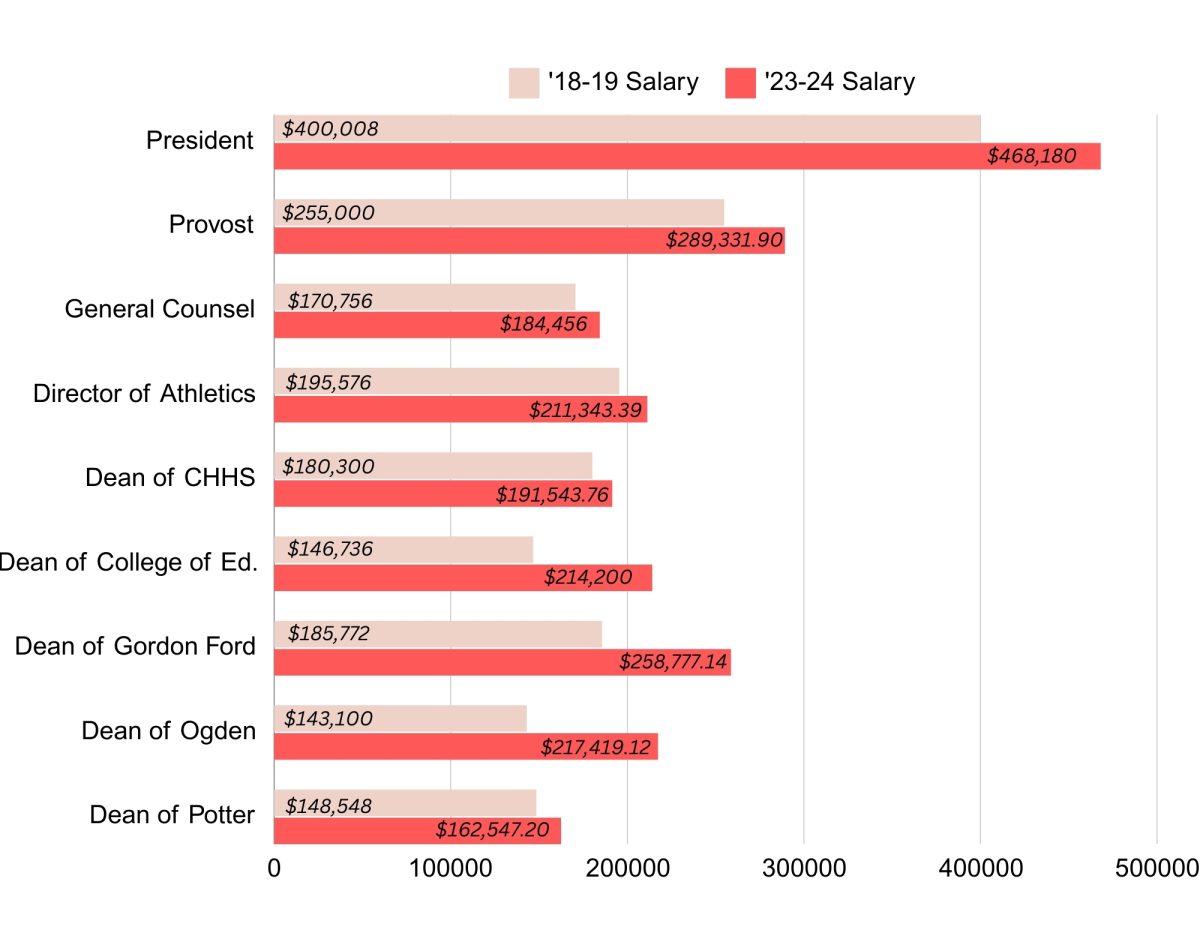
- Provost position: 13.5% ($34,330.90) increase from $255,000 to $289,330.90.
- General Counsel: 8% ($13,720) increase from $170,736 to $184,456.
- Director of Athletics: 8% ($15,767.39) increase from $195,576.00 to $211,343.39.
- Dean of CHHS: 6% ($11,243.76) increase from $180,300 to $191,543.76.
- Dean of College of Education: 46% ($67,464) increase from $146,736 to $214,200.
- Dean of Gordon Ford College of Business: 39% ($73,005.14) increase from $185,772 to $258,777.14.
- Dean of Ogden College: 52% ($74,319.12) increase from $143,100 to $217,419.12.
- Dean of Potter College: 9% ($13,999.20) increase from $148,548 to $162,547.20
“I think the first step with regard to compensation,” McKerral said, “would be that no administrator, including the president, should get an increase in pay that is more than what the faculty get.”
The faculty are the backbone of the university, McKerral went on. “There would be no institution if there were no faculty because there would be no students.”
What now?
Amidst these trending concerns, faculty have a fear of sharing their beliefs about administration.
“We think we’re gonna get in trouble for speaking out,” McKerral said.
In this year’s survey, respondents were asked, on a scale of one to five, whether they agreed with the statement that they can express dissenting views on the university governance without fear of intimidation or reprisal. The average score was 2.39.
“I feel like when I speak out it’s my nature,” McKerral added. “I want people to be treated fairly… I’m not willing to accept b.s.”
WKU spokesperson Jace Lux provided the Herald with a statement about the work-life survey.
“We extend our gratitude to the faculty members who participated in the work-life survey,” Lux said. “The university prioritizes providing a safe and comfortable work environment, and this survey is an important tool in our efforts to develop long-term strategies that enable all campus community members to reach their full potential and contribute to WKU’s collective success.”
News reporter Cameron Shaw can be reached at cameron.shaw555@topper.wku.edu.


